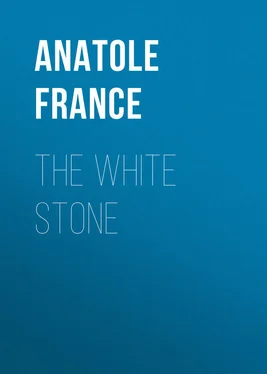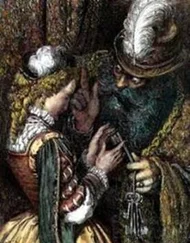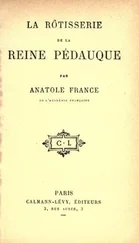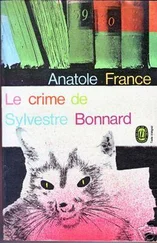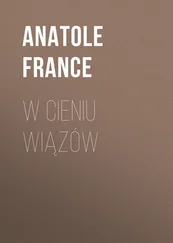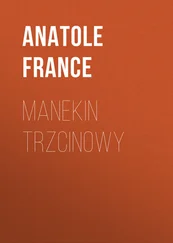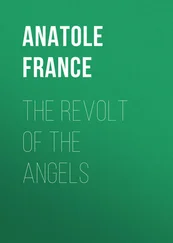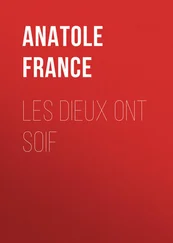Anatole France - The White Stone
Здесь есть возможность читать онлайн «Anatole France - The White Stone» — ознакомительный отрывок электронной книги совершенно бесплатно, а после прочтения отрывка купить полную версию. В некоторых случаях можно слушать аудио, скачать через торрент в формате fb2 и присутствует краткое содержание. Жанр: foreign_antique, foreign_prose, на английском языке. Описание произведения, (предисловие) а так же отзывы посетителей доступны на портале библиотеки ЛибКат.
- Название:The White Stone
- Автор:
- Жанр:
- Год:неизвестен
- ISBN:нет данных
- Рейтинг книги:4 / 5. Голосов: 1
-
Избранное:Добавить в избранное
- Отзывы:
-
Ваша оценка:
- 80
- 1
- 2
- 3
- 4
- 5
The White Stone: краткое содержание, описание и аннотация
Предлагаем к чтению аннотацию, описание, краткое содержание или предисловие (зависит от того, что написал сам автор книги «The White Stone»). Если вы не нашли необходимую информацию о книге — напишите в комментариях, мы постараемся отыскать её.
The White Stone — читать онлайн ознакомительный отрывок
Ниже представлен текст книги, разбитый по страницам. Система сохранения места последней прочитанной страницы, позволяет с удобством читать онлайн бесплатно книгу «The White Stone», без необходимости каждый раз заново искать на чём Вы остановились. Поставьте закладку, и сможете в любой момент перейти на страницу, на которой закончили чтение.
Интервал:
Закладка:
Anatole France
The White Stone
Καὶ ἔμοιγε δοκεῖτε ἐπὶ λευκάδα πέτρην καὶ δῆμον ὀνείρων καταδαρθέντες τοσαῦτα ὀνειροπολεῖν ἐν ἀκαρεῖ τῆς νυκτὸς οὔσης.
(Philopatris, xxi.)And to me it seems that you have fallen asleep upon a white rock, and in a parish of dreams, and have dreamt all this in a moment while it was night.
I
A few Frenchmen, united in friendship, who were spending the spring in Rome, were wont to meet amid the ruins of the disinterred Forum. They were Joséphin Leclerc, an Embassy Attaché on leave; M. Goubin, licencié ès lettres, an annotator; Nicole Langelier, of the old Parisian family of the Langeliers, printers and classical scholars; Jean Boilly, a civil engineer, and Hippolyte Dufresne, a man of leisure, and a lover of the fine arts.
Towards five o’clock of the afternoon of the first day of May, they wended their way, as was their custom, through the northern door, closed to the public, where Commendatore Boni, who superintended the excavations, welcomed them with quiet amenity, and led them to the threshold of his house of wood nestling in the shadow of laurel bushes, privet hedges and cytisus, and rising above the vast trench, dug down to the depth of the ancient Forum, in the cattle market of pontifical Rome.
Here, they pause awhile, and look about them.
Facing them rise the truncated shafts of the Columnæ Honorariæ, and where stood the Basilica of Julia, the eye rested on what bore the semblance of a huge draughts-board and its draughts. Further south, the three columns of the Temple of the Dioscuri cleave the azure of the skies with their blue-tinted volutes. On their right, surmounting the dilapidated Arch of Septimus Severus, the tall columns of the Temple of Saturn, the dwellings of Christian Rome, and the Women’s Hospital display in tiers, their facings yellower and muddier than the waters of the Tiber. To their left stands the Palatine flanked by huge red arches and crowned with evergreen oaks. At their feet, from hill to hill, among the flagstones of the Via Sacra, narrow as a village street, spring from the earth an agglomeration of brick walls and marble foundations, the remains of buildings which dotted the Forum in the days of Rome’s strength. Trefoil, oats, and the grasses of the field which the wind has sown on their lowered tops, have covered them with a rustic roof illumined by the crimson poppies. A mass of débris , of crumbling entablatures, a multitude of pillars and altars, an entanglement of steps and enclosing walls: all this indeed not stunted but of a serried vastness and within limits.
Nicole Langelier was doubtless reviewing in his mind the host of monuments confined in this famed space:
“These edifices of wise proportions and moderate dimensions,” he remarked, “were separated from one another by narrow streets full of shade. Here ran the vicoli beloved in countries where the sun shines, while the generous descendants of Remus, on their return from hearing public speakers, found, along the walls of the temples, cool yet foul-smelling corners, whence the rinds of water-melons and castaway shells were never swept away, and where they could eat and enjoy their siesta. The shops skirting the square must certainly have emitted the pungent odour of onions, wine, fried meats, and cheese. The butchers’ stalls were laden with meats, to the delectation of the hardy citizens, and it was from one of those butchers that Virginius snatched the knife with which he killed his daughter. There also were doubtless jewellers and vendors of little domestic tutelary deities, protectors of the hearth, the ox-stall, and the garden. The citizens’ necessaries of life were all centred in this spot. The market and the shops, the basilicas, i. e. , the commercial Exchanges and the civil tribunals; the Curia, that municipal council which became the administrative power of the universe; the prisons, whose vaults emitted their much dreaded and fetid effluvia, and the temples, the altars, of the highest necessity to the Italians who have ever some thing to beg of the celestial powers.
“Here it was, lastly, that during a long roll of centuries were accomplished the vulgar or strange deeds, almost ever flat and dull, oftentimes odious and ridiculous, at times generous, the agglomeration of which constitutes the august life of a people.”
“What is it that one sees, in the centre of the square, fronting the commemorative pedestals?” inquired M. Goubin, who, primed with an eye-glass, had noticed a new feature in the ancient Forum, and was thirsting for information concerning it.
Joséphin Leclerc obligingly answered him that they were the foundations of the recently unearthed colossal statue of Domitian.
Thereupon he pointed out, one after the other, the monuments laid bare by Giacomo Boni in the course of his five years’ fruitful excavations: the fountain and the well of Juturna, under the Palatine Hill; the altar erected on the site of Cæsar’s funeral pile, the base of which spread itself at their feet, opposite the Rostra; the archaic stele and the legendary tomb of Romulus over which lies the black marble slab of the Comitium; and again, the Lacus Curtius.
The sun, which had set behind the Capitol, was striking with its last shafts the triumphal arch of Titus on the towering Velia. The heavens, where to the West the pearl-white moon floated, remained as blue as at midday. An even, peaceful, and clear shadow spread itself over the silent Forum. The bronzed navvies were delving this field of stones, while, pursuing the work of the ancient Kings, their comrades turned the crank of a well, for the purpose of drawing the water which still forms the bed where slumbered, in the days of pious Numa, the reed-fringed Velabrum.
They were performing their task methodically and with vigilance. Hippolyte Dufresne, who had for several months been a witness of their assiduous labour, of their intelligence and of their prompt obedience to orders, inquired of the director of the excavations how it was that he obtained such yeoman’s work from his labourers.
“By leading their life,” replied Giacomo Boni. “Together with them do I turn over the soil; I impart to them what we are together seeking for, and I impress on their minds the beauty of our common work. They feel an interest in an enterprise the grandeur of which they apprehend but vaguely. I have seen their faces pale with enthusiasm when unearthing the tomb of Romulus. I am their everyday comrade, and if one of them falls ill, I take a seat at his bedside. I place as great faith in them as they do in me. And so it is that I boast of faithful workmen.”
“Boni, my dear Boni,” exclaimed Joséphin Leclerc, “you know full well that I admire your labours, and that your grand discoveries fill me with emotion, and yet, allow me to say so, I regret the days when flocks grazed over the entombed Forum. A white ox, from whose massive head branched horns widely apart, chewed the cud in the unploughed field; a hind dozed at the foot of a tall column which sprang from the sward, and one mused: Here was debated the fate of the world. The Forum has been lost to poets and lovers from the day that it ceased to be the Campo Formio.”
Jean Boilly dwelt on the value of these excavations, so methodically carried out, as a contribution towards a knowledge of the past. Then, the conversation having drifted towards the philosophy of the history of Rome:
“The Latins,” he remarked, “displayed reason even in the matter of their religion. Their gods were commonplace and vulgar, but full of common sense and occasionally generous. If a comparison be drawn between this Roman Pantheon composed of soldiers, magistrates, virgins, and matrons and the deviltries painted on the walls of Etruscan tombs, reason and madness will be found in juxtaposition. The infernal scenes depicted in the mortuary chambers of Corneto represent the monstrous creations of ignorance and fear. They seem to us as grotesque as Orcagna’s Day of Judgment in Santa Maria Novella at Florence, and the Dantesque Hell of the Campo Santo of Pisa, whereas the Latin Pantheon reflects for ever the image of a well-organised society. The gods of the Romans were like themselves, industrious and good citizens. They were useful deities, each one having its proper function. The very nymphs held civil and political offices.
Читать дальшеИнтервал:
Закладка:
Похожие книги на «The White Stone»
Представляем Вашему вниманию похожие книги на «The White Stone» списком для выбора. Мы отобрали схожую по названию и смыслу литературу в надежде предоставить читателям больше вариантов отыскать новые, интересные, ещё непрочитанные произведения.
Обсуждение, отзывы о книге «The White Stone» и просто собственные мнения читателей. Оставьте ваши комментарии, напишите, что Вы думаете о произведении, его смысле или главных героях. Укажите что конкретно понравилось, а что нет, и почему Вы так считаете.
